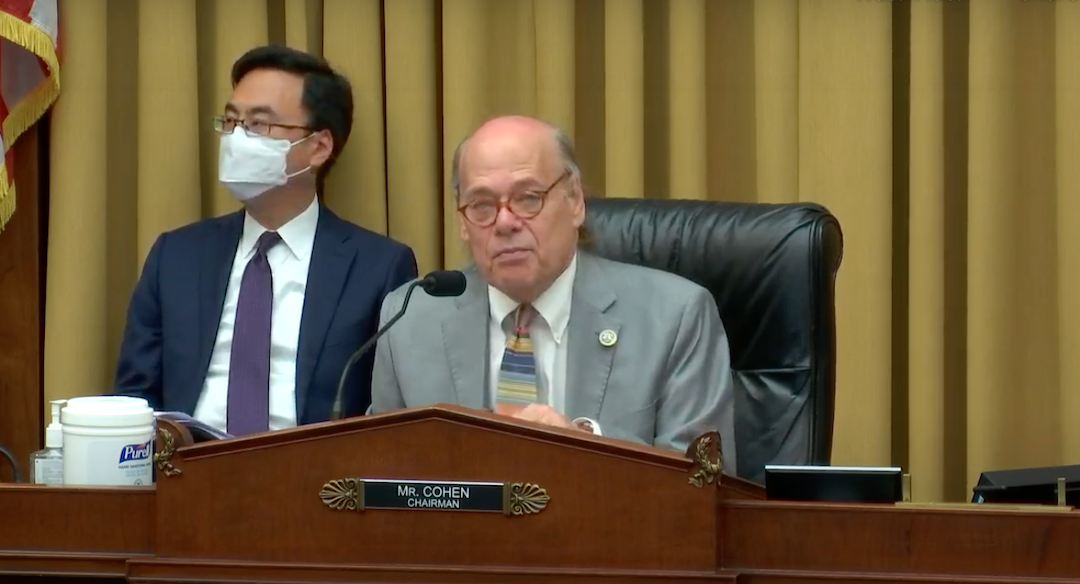WASHINGTON – The Justice Department has prevented minorities from voting under the guise of protecting against voter fraud, the chairman of the House Constitution, Civil Rights and Civil Liberties Subcommittee said Thursday.
The chairman, Rep. Steve Cohen, D-Tenn., said the Justice Department’s Civil Rights Division has failed to safeguard minorities’ voting rights since the Trump administration’s start. He likened today’s voter roll purges and identification requirements to past voting obstacles like literacy tests and poll taxes, saying they’ve been used to “silence the voices of Black Americans and other minorities.”
“The Civil Rights Division appears under the Trump administration to have abandoned its historical mandate to protect voting rights,” Cohen said, referring to the Civil Rights Act of 1957 that said no American could be denied the right to vote.
Congress should protect minorities’ voting rights by passing the John R. Lewis Voting Rights Advancement Act of 2019, said Brennan Center for Justice President Michael Waldman.
It would require states with 15 or more voting violations in the past 25 years to seek DOJ approval for voting practice changes. It would also require public notice for these changes and reinforce the DOJ’s authority to send observers to polling places.
NAACP Legal Defense and Educational Fund President Sherrilyn Ifill testified that the DOJ can challenge discriminatory voting practices in federal court under the Voting Rights Act. She said that power is especially vital after the 2013 ruling in Shelby County v. Holder weakened the federal government’s ability to approve states’ voting changes and ensure they would not harm minority voting rights.
“With voter suppression intensifying each and every year at the local, state and federal levels, the right to vote for African American people and other people of color, is facing its greatest threat in decades,” Ifill said.
Prior to the Shelby County ruling, the Civil Rights Division had blocked 86 state and local submissions of election changes from 1998 to 2013, Waldman said.
U.S. Commission on Civil Rights Chair Catherine Lhamon said that the DOJ has filed only four Section 2 cases, one language access case and no cases about voting assistance since 2013.
Southern states began to implement and enforce photo ID laws previously barred and voter purges soared, Waldman said. The Brennan Center filed a Freedom of Information Act request in 2017 seeking information on voter roll purges, but the Justice Department has refused to release these thousands of documents, asserting that would interfere with law enforcement proceedings.
Waldman condemned the administration’s “gross abuse of power” in recent months. President Donald Trump last month threatened to use law enforcement on Election Day and Attorney General William Barr joined Trump in claiming, erroneously, that mail-in voting leads to substantial voter fraud.
Waldman said that the DOJ should investigate why voters of color experienced longer wait times at the polls than their white counterparts in the 2018 election.
Jonathan Smith, chief of special litigation at the Civil Rights Division from 2010 to 2015, said the division’s work used to be focused on addressing systemic racial inequity.
“This moment in history creates the opportunity to confront racial injustice and achieve change that will create greater equity,” Smith said. “The civil rights division is largely sitting on the sidelines.”

